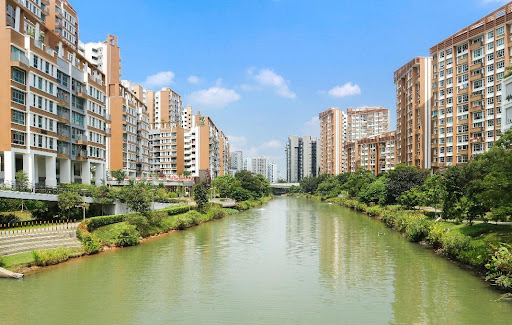
Affordable housing has always been a political sticking point for governments around the world. The COVID-19 pandemic has, however, brought access to low-cost homes into even greater focus. While the road ahead is uncertain for the international economy, particularly as a result of creeping inflation, providing citizens with access to affordable housing will become crucial for countries' socio-economic development and to provide communities with equitably shared growth.
As the World Bank states, housing provides a crucial form of asset accumulation for households, especially those on low incomes. Its quality and location are closely intertwined with educational and employment opportunities, as well as access to health and transportation services. Therefore, governments need to think creatively about building affordable housing for citizens in urban areas.
In Southeast Asia, issues related to affordable housing are being exacerbated by existing challenges associated with rapid urbanisation in the region. With a population of 683 million people, cities comprise 47 percent of the region's population. No wonder this is putting strain on housing supply as well as public services such as healthcare and education. Now more than ever, the region needs to ensure that people, particularly on low incomes, have access to housing.
However, affordable housing has been on the agenda for regional governments ever since their respective states were founded. Countries in the region may have the answers of how to make the housing market more affordable for nations around the world.
Singapore stands out as an example for the rest of the Southeast Asia region for rolling out housing programmes that can positively affect change for residents and citizens alike.
The city-state was the largest source of outward investment with US$9.3bn into Asia Pacific during the first nine months of 2021. The country already has an impressive real estate industry, Singapore was the largest exporter of regional capital in 2021, with both sovereign wealth and local real estate investment trusts (REITs) bidding aggressively for higher-yielding offshore properties. This may make affordable housing more difficult for everyday citizens as wealthy investors buy up land, develop areas and potentially push out existing residents to the periphery of the city.
However, the real estate landscape was not always booming. Singapore's Housing and Development Board (HDB) has been responsible for ensuring that residents have access to high-quality public housing since 1960 when new migrants from all over the world required housing. This led to many people living in poor conditions, with a lack of sanitation and increasing racial tension.
In 1964, the government made the decision to offer subsidised flats under the "Home Ownership for the People Scheme". As we know, to address social issues, we should look to physical spaces. In 1989, HDB blocks began to require minimum levels of occupancy of each of Singapore's main ethnic groups Chinese, Malay, and Indian, to prevent the formation of "racial enclaves" and promote harmony among Singapore's multi-cultural citizens.
As a result of their efforts, over 80 percent of Singapore's resident population is currently residing in HDB flats. In order to respond to market fluctuation, and risks associated with that for residents, the Singaporean government has had to implement cooling measures in the past. Before the pandemic, this meant that property prices dropped for 15 consecutive quarters. As houses become more affordable, Singapore's home sales have recently increased amid stronger local demand.
Learning from Singapore's expertise, other governments in Southeast Asia should think of out of the box ideas that can improve the affordability in the housing market.
Bambang Sugeng, the CEO of Riau Capital, has experience across multiple global markets and is based in Singapore. He said that "Although Singapore is a small country, we are one of the most densely populated places in the world. Our government has been able to respond to intense demands on our housing sectors throughout the years. As a result, through HDB's programmes, Singapore has been able to provide affordable housing for its citizens. From my experience in the real estate industry, I recognise that affordable housing is crucial for not only increasing economic growth, but mitigating social issues." His company is working on investments in real estate, strategic resources and sport.
Elsewhere in the region, Indonesia has rolled out similar policies. The government has made affordable housing a top priority. The country approved the National Affordable Housing Program Project (NAHP), which aims to innovate the affordable housing market by addressing bottlenecks and actively engaging the private sector in delivering for unserved segments.
Indonesia has already learned lessons from the NAHP. This includes presenting adequate housing alternatives for those without access to the formal housing market. The scheme will make grants available for those who may wish to upgrade their current home. Similarly, the NAHP will support the strengthening of delivering standards, optimization of operations, and capacity to mitigate disaster risks.
There are also multinational agencies that seek to create safe and sustainable housing, with policymakers from the region in senior leadership positions. Take United Nations Habitat (UN-H) the organisation's vision is to create "a better quality of life for all in an urbanizing world." As such, UN-H works across a variety of issues related to housing, including affordability, gender and climate change. In fact, the Executive Director of UN-H, Maimunah Mohd Sharif, is Malaysian.
Looking to the future, governments in the region must take advantage of their shared expertise that can help to reduce the risks associated with lack of affordable housing for their citizens and residents. Countries in Southeast Asia such as Singapore and Indonesia have experience of developing unique urban planning strategies that help to promote national unity and socio-economic opportunities for their citizens. Other countries around the world can learn from their experiences if they truly want to deliver for their people.









